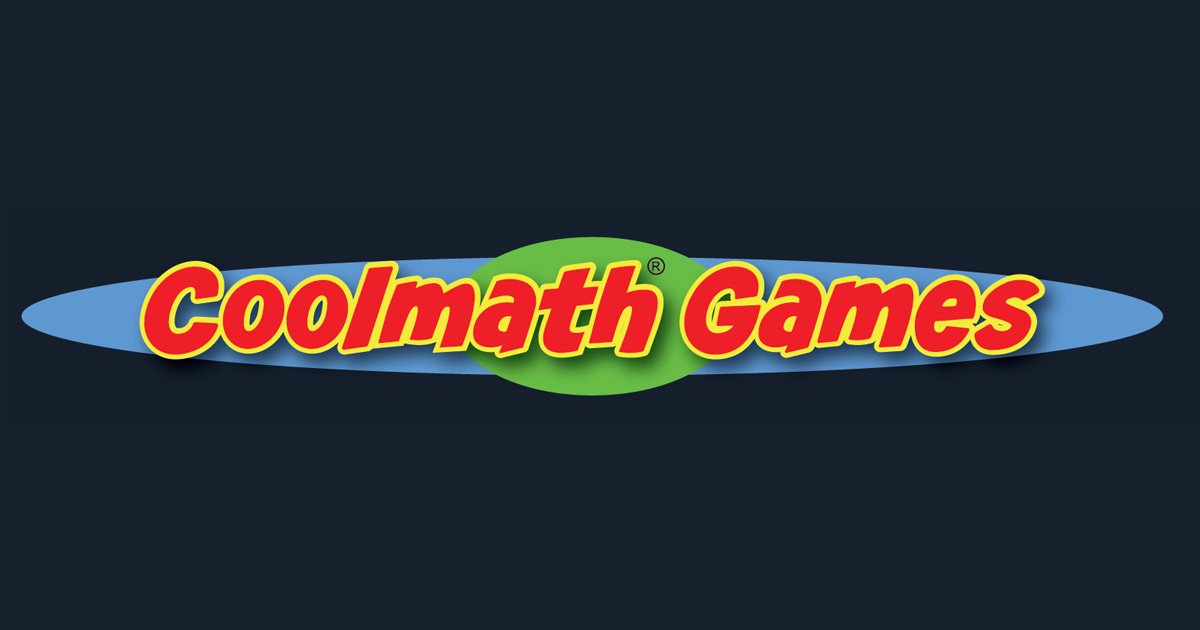Math Cool Games Free is often considered a challenging subject, but it doesn’t have to be boring or intimidating. In fact, learning math can be enjoyable and exciting, especially when combined with the power of games. Math games provide a unique opportunity to engage students, make learning fun, and reinforce important mathematical concepts. In this article, we will explore the benefits of math games, highlight some popular options, discuss their integration in education, and provide tips for choosing the right games.
II. Benefits of Math Cool Games Free
Math Cool Games Free offer numerous advantages that go beyond mere entertainment. By incorporating games into math learning, students can enhance their problem-solving skills, develop critical thinking abilities, and improve their mathematical fluency and accuracy. Let’s delve deeper into these benefits.
- Games in PPSSPP: Unleash the Portable Gaming Experience
- PS Vita: The Greatest Games of All Time | Download Games
- RetroArch: Your Gateway to Classic Gaming | Download Apps
1. Enhancing Problem-Solving Skills
Math Cool Games Free require players to solve puzzles, tackle challenges, and find solutions to numerical problems. These activities stimulate critical thinking and logical reasoning, encouraging students to analyze situations, devise strategies, and apply their mathematical knowledge effectively. Through regular practice, students can sharpen their problem-solving skills, enabling them to tackle math problems with confidence.
2. Developing Critical Thinking Abilities
Mathematics is not just about numbers and formulas; it involves logical thinking and reasoning. Math games provide a platform for students to think critically, make decisions, and evaluate different approaches. By engaging in game-based activities, students learn to think outside the box, explore creative solutions, and develop a deeper understanding of mathematical concepts.
3. Improving Mathematical Fluency and Accuracy
Repetition is a key aspect of mastering any skill, and math games provide ample opportunities for practice. By solving math problems in a game setting, students can reinforce their mathematical fluency and accuracy. Constant engagement with math games helps students build mental math skills, improve number sense, and enhance their overall mathematical proficiency.
III. Top Math Cool Games Free for Kids
There are numerous math games available that cater to different age groups and skill levels. Let’s take a look at some of the top math games that kids can enjoy while learning.
1. Math Playground
Math Playground offers a wide range of math games and activities for elementary and middle school students. With its diverse collection of games covering various topics, Math Playground provides an engaging and educational platform for students to practice their math skills.
2. Prodigy
Prodigy is an immersive math game that incorporates a fantasy adventure setting. By solving math problems, students progress through the game, battle enemies, and unlock new abilities. Prodigy covers a wide range of math topics and aligns with curriculum standards.
3. Coolmath Games
Coolmath Games is a popular website that offers a plethora of math games for all ages. From logic puzzles to interactive quizzes, Coolmath Games provides a fun and engaging environment for students to explore different math concepts.
4. Math Blaster
Math Blaster combines exciting space-themed gameplay with math learning. Students embark on missions, solve math problems, and compete against other players. With its interactive and competitive nature, Math Blaster motivates students to improve their math skills.
5. Mangahigh
Mangahigh provides a unique blend of math games and adaptive learning. The platform offers personalized math challenges and activities based on students’ individual strengths and weaknesses. Mangahigh covers a wide range of math topics, making it suitable for students of different skill levels.
6. SplashLearn
SplashLearn is an interactive math learning program that offers games, activities, and quizzes for children from kindergarten to grade 5. With its visually appealing interface and adaptive learning approach, SplashLearn provides an effective tool for reinforcing math concepts.
IV. How Math Cool Games Free Make Learning Fun
One of the key reasons math games are popular among students is their ability to make learning fun and enjoyable. Here’s how math games achieve this:
1. Engaging Visuals and Interactive Features
Math Cool Games Free often incorporate colorful graphics, animations, and interactive features that capture students’ attention. These visual elements create an immersive learning experience, making math concepts more engaging and memorable.
2. Gamification Elements and Rewards
Math games frequently include gamification elements such as levels, badges, and rewards. These elements create a sense of achievement and motivation for students, encouraging them to continue playing and learning. By earning rewards and progressing through levels, students feel a sense of accomplishment and are motivated to further improve their math skills.
3. Competitive Gameplay and Challenges
Many math games offer multiplayer modes or leaderboards where students can compete against their peers or set high scores. This competitive aspect adds excitement and encourages friendly competition among students. By challenging themselves and others, students become more invested in the learning process, leading to increased motivation and engagement.
V. Integrating Math Cool Games Free in Education
Math Cool Games Free have the potential to complement traditional classroom learning and provide additional opportunities for practice and exploration. Here’s how math games can be effectively integrated into education:
1. Supplementing Classroom Learning
Math games can serve as valuable supplementary resources for reinforcing concepts taught in the classroom. Teachers can incorporate relevant games as part of their lesson plans, allowing students to apply what they’ve learned in a fun and interactive manner.
2. Individualized Learning Experiences
Math Cool Games Free often adapt to students’ abilities, providing personalized learning experiences. This adaptability allows students to work at their own pace and focus on areas where they need more practice. By catering to individual needs, math games can support differentiated instruction and promote a deeper understanding of mathematical concepts.
3. Tracking Progress and Performance
Many math games include built-in progress tracking features that allow teachers and parents to monitor students’ performance. By reviewing data and analytics, educators can identify areas where students may need additional support and tailor instruction accordingly. Progress tracking also enables parents to stay involved and have meaningful conversations about their child’s math learning.
VI. Math Games for Different Skill Levels
Math Cool Games Free are available for students of all ages and skill levels. Let’s explore some examples of math games tailored to specific age groups:
1. Early Learners (Preschool and Kindergarten)
For young children, math games focus on foundational skills such as counting, number recognition, and basic shapes. Games like “Counting Caterpillar” and “Shape Sorter” help develop early math skills in an interactive and engaging way.
2. Elementary School Students
Math Cool Games Free for elementary school students cover a wide range of topics, including addition, subtraction, multiplication, and division. Games like “Math Bingo” and “Number Crunch Saga” provide a fun environment for practicing these essential skills.
3. Middle School Students
Middle school math games delve deeper into concepts such as fractions, decimals, and basic algebra. Games like “Fraction Frenzy” and “Algebra Adventures” challenge students while making learning enjoyable.
4. High School Students
Math Cool Games Free for high school students focus on more advanced topics, including geometry, trigonometry, and calculus. Games like “Geometry Dash” and “Calculus Quest” provide interactive experiences that reinforce these complex concepts.
VII. Math Cool Games Free for Specific Topics
Math Cool Games Free cater to various specific topics, allowing students to focus on areas of interest or areas where they need additional practice. Here are some examples:
1. Addition and Subtraction
Games like “Addition Attack” and “Subtraction Superstars” provide opportunities for students to practice basic arithmetic skills while enjoying an interactive game environment.
2. Multiplication and Division
Math Cool Games Free such as “Multiplication Mania” and “Division Dash” offer engaging ways for students to reinforce their multiplication and division facts and improve their speed and accuracy.
3. Fractions and Decimals
Fraction and decimal concepts can be challenging, but math games like “Fraction Funland” and “Decimal Dive” break down these concepts into interactive activities that make learning more accessible and enjoyable.
4. Geometry and Shapes
Geometry games such as “Shape Shifter” and “Polygon Party” allow students to explore geometric concepts, identify shapes, and understand spatial relationships in a playful setting.
5. Algebra and Equations
For students studying algebra, games like “Algebra Ace” and “Equation Escape” provide opportunities to solve equations, simplify expressions, and strengthen their algebraic skills in an engaging way.
VIII. Tips for Choosing the Right Math Cool Games Free
With numerous math games available, it’s essential to select ones that align with educational goals and provide an enriching experience. Here are some tips for choosing the right math games:
1. Age-Appropriate Content
Consider the age and grade level of the students when choosing math games. Games designed for younger children may not adequately challenge older students, while games meant for older students may overwhelm younger learners.
2. Aligning with Curriculum Standards
Select math games that align with the curriculum standards or learning objectives. This ensures that the games reinforce what students are already learning in the classroom and support their academic progress.
3. Positive User Reviews and Recommendations
Read user reviews and recommendations from parents, teachers, and educational websites. The experiences and insights of others can provide valuable guidance in identifying high-quality math games that have proven effective in supporting learning.
IX. How Parents Can Support Math Learning with Games
Parents play a crucial role in supporting their child’s math learning journey. Here are some ways parents can utilize math games to enhance their child’s understanding:
1. Encouraging Game Time
Parents can encourage their child to spend time playing math games by highlighting the fun aspects and benefits of these games. By creating a positive attitude toward math games, parents can motivate their child to engage in meaningful learning experiences.
2. Monitoring and Discussing Progress
Parents should actively monitor their child’s progress in math games. By observing their child’s performance, parents can identify areas that require additional support or provide opportunities for deeper discussions about mathematical concepts.
3. Connecting Math Concepts to Real-Life Situations
Parents can help their child see the relevance of math in everyday life by discussing real-life situations where math skills are applied. By relating math concepts learned through games to practical examples, parents can reinforce understanding and make math more relatable and meaningful.
X. The Future of Math Cool Games Free
As technology continues to advance, the future of math games looks promising. Here are some potential developments on the horizon:
1. Advancements in Technology and Virtual Reality
With the advent of virtual reality (VR) and augmented reality (AR), math games have the potential to provide even more immersive and interactive learning experiences. VR can transport students to virtual math environments, enabling them to explore concepts in three dimensions and visualize abstract ideas.
2. Personalized Adaptive Learning Experiences
Math Cool Games Free are increasingly incorporating adaptive learning algorithms that tailor the gameplay to individual students’ strengths and weaknesses. In the future, these algorithms may become even more sophisticated, providing highly personalized learning experiences that adapt in real-time based on each student’s progress and learning style.
XI. Conclusion
Math games offer a powerful tool for making math learning enjoyable, engaging, and effective. By enhancing problem-solving skills, developing critical thinking abilities, and improving mathematical fluency, math games have a positive impact on students’ math education. With a wide range of options available, students can find games that suit their age, skill level, and specific math topics. By integrating math games into education and receiving support from parents, students can strengthen their mathematical abilities while having fun along the way.
XII. FAQs
1. Are math games only suitable for children? No, Math Cool Games Free are suitable for learners of all ages. There are math games designed specifically for different age groups, from early learners to adults. These games can cater to varying levels of mathematical proficiency and provide engaging learning experiences.
2. Can math games replace traditional classroom teaching? Math Cool Games Free can complement traditional classroom teaching by offering additional practice, reinforcement, and exploration of mathematical concepts. However, they cannot replace the comprehensive instruction provided in a classroom setting. Math games should be seen as a supportive tool rather than a substitute for traditional teaching methods.
3. How do Math Cool Games Free improve problem-solving skills? Math Cool Games Free require players to solve puzzles, overcome challenges, and find solutions to mathematical problems. By engaging in these activities, players develop critical thinking skills, logical reasoning abilities, and the capacity to analyze and solve problems effectively. Regular practice with math games can enhance problem-solving skills over time.
4. Are there math games for adults? Yes, there are math games designed specifically for adults. These games can help adults improve their mathematical skills, refresh their knowledge, or explore advanced mathematical concepts. They can be particularly useful for individuals who wish to enhance their numeracy or pursue further studies in math-related fields.
5. Can Math Cool Games Free help struggling students? Math Cool Games Free can be beneficial for struggling students. They provide an interactive and engaging environment where students can practice math skills at their own pace. Math games often adapt to the individual needs of students, allowing them to focus on areas where they need more support. Regular engagement with math games can help struggling students build confidence, improve their understanding, and strengthen their overall math abilities.













Facebook comments